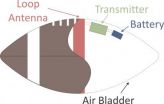(Press-News.org) Five charities in the UK are both active in alcohol policy processes and funded by the alcohol industry, according to a new study published in the European Journal of Public Health.
The study, carried out by researchers at the London School of Hygiene & Tropical Medicine, looks at the relationships between the alcohol industry, charities and policy influence in the UK.
Two of the charities, Addaction and Mentor UK, are the only remaining non-industry, non-governmental members of the Public Health Responsibility Deal's alcohol network – the UK government's initiative to work collaboratively with the alcohol industry for public health policy making. All other public health interest groups resigned from the network, mostly due to concerns over industry influence on policy, and the decision not to implement minimum unit pricing last year.
Senior author Dr Jim McCambridge of the London School of Hygiene & Tropical Medicine said: "Our work raises interesting questions about the extent to which the alcohol industry is using UK charities to further interests. Policy makers in the UK need to consider whether current levels of transparency in policy-making best serve public benefit. It is well established that the tobacco industry has used corporate philanthropy as a political device, though little attention internationally has previously been paid to the alcohol industry and charities."
By investigating the charity commission website and financial records of 1,400 charities in England and Wales, the researchers identified the sources of funding for charities involved in UK alcohol policy.
Addaction and Mentor UK were found to have received industry funding alongside public sector grants, and are active in alcohol policy. Addaction offers services to people affected by drug and alcohol problems, and received £351,000 from Heineken UK in 2011/12. Mentor UK offers mentoring programmes to protect children from alcohol and drugs, and received 25% of its income from spirit producer Diageo in 2008/09.
In addition to Addaction and Mentor UK, three other charities - Drinkaware, The Robertson Trust and British Institute of Innkeeping – were also found to have received almost all their income from the alcohol industry or from people working in the industry and have senior alcohol industry figures as trustees.
The authors say the limitations of the study include the confidentiality of some donors in annual reports and accounts, as it is not a legal requirement for charities to disclose all funding sources in annual reports.
Dr Jim McCambridge explains: "There could be much more industry funding of alcohol charities than we uncovered in our study as charities are not required to declare all funding sources. Charities operating in alcohol or other policy arenas should be required to declare any possible conflicts of interest from funding sources, to ensure greater transparency."
Addaction, which works with people addicted to drink and drugs, has received £1m from Asda and £560,000 from Heineken during the past three years. Mentor UK, which works to prevent alcohol-related harm among children, accepted £421,000 between 2008-09 and 2012-13, and a further £100,000 since. That included £371,000 from the drinks company Diageo and £100,000 from two trusts funded by profits from sales of alcohol.
INFORMATION:
Sarah M. Lyness, Jim McCambridge. The alcohol industry, charities and policy influence in the UK. European Journal of Public Health. DOI:10.1093/eurpub/cku076
A copy of the paper is available at http://eurpub.oxfordjournals.org/content/early/2014/06/09/eurpub.cku076.full
For more information or to arrange interviews with the Dr McCambridge, please contact Katie Steels at the London School of Hygiene & Tropical Medicine press office on +44 (0) 2079272802 / press@lshtm.ac.uk.
About the London School of Hygiene & Tropical Medicine
The London School of Hygiene & Tropical Medicine is a world-leading centre for research and postgraduate education in public and global health, with 3,900 students and more than 1,000 staff working in over 100 countries. The School is one of the highest-rated research institutions in the UK, and was recently cited as the world's leading research-focused graduate school. Our mission is to improve health and health equity in the UK and worldwide; working in partnership to achieve excellence in public and global health research, education and translation of knowledge into policy and practice. http://www.lshtm.ac.uk
Charity funding study brings alcohol industry influence on UK policy into question
2014-06-13
ELSE PRESS RELEASES FROM THIS DATE:
New membrane-synthesis pathways in bacteria discovered
2014-06-13
Biologists at the Ruhr-Universität Bochum (RUB) have discovered new mechanisms used by bacteria to manufacture lipids, i.e. fat molecules, for the cell membrane. Those mechanisms are a combination of familiar bacterial synthesis pathways and of such that occur in higher organisms. Thus, the team headed by Prof Dr Franz Narberhaus and Dr Roman Moser has debunked the long-standing theory that lipid production in bacteria differs substantially from that in higher organisms. The results have been published in the journal Molecular Microbiology.
Potential for the pharmaceutical ...
Are female hormones playing a key role in obesity epidemic?
2014-06-13
An imbalance of female sex hormones among men in Western nations may be contributing to high levels of male obesity, according to new research from the University of Adelaide.
In a paper published in the online journal PLOS ONE, researchers from the University's School of Medical Sciences suggest that obesity among Western men could be linked with exposure to substances containing the female sex hormone estrogen – substances that are more often found in affluent societies, such as soy products and plastics.
The research was conducted by University of Adelaide medical ...
Crossing the goal line: New tech tracks football in 3-D space
2014-06-13
Referees may soon have a new way of determining whether a football team has scored a touchdown or gotten a first down. Researchers from North Carolina State University and Carnegie Mellon University, in collaboration with Disney Research, have developed a system that can track a football in three-dimensional space using low-frequency magnetic fields.
The technology could be particularly useful for situations when the ball is blocked from view, such as goal-line rushing attempts when the ball carrier is often buried at the bottom of a pile of players. The technology could ...
Breakthrough for information technology using Heusler materials
2014-06-13
It is the breakthrough that physicists and chemists around the world have long anticipated and it will play a pivotal role in information technology in coming years. Researchers at Johannes Gutenberg University Mainz (JGU) have managed, for the first time, to directly observe the 100 percent spin polarization of a Heusler compound. Heusler alloys are composed of several metallic elements arranged in a lattice structure. They are among those materials that potentially can be used for ever smaller data storage components with ever greater storage capacity. However, doubts ...
Rescue of Alzheimer's memory deficit achieved by reducing 'excessive inhibition'
2014-06-13
A new drug target to fight Alzheimer's disease has been discovered by a research team led by Gong Chen, a Professor of Biology and the Verne M. Willaman Chair in Life Sciences at Penn State University. The discovery also has potential for development as a novel diagnostic tool for Alzheimer's disease, which is the most common form of dementia and one for which no cure has yet been found. A scientific paper describing the discovery will be published in Nature Communications on 13 June 2014.
Chen's research was motivated by the recent failure in clinical trials of once-promising ...
Genotyping can predict disease outcomes in rheumatoid arthritis patients
2014-06-13
New cohort studies presented today at the European League Against Rheumatism Annual Congress (EULAR 2014) have shown the amino acid valine at position 11 of HLA-DRB1 gene to be the strongest independent genetic determinant of radiological damage in rheumatoid arthritis (RA).1 In addition, positions 71 and 74 were found to represent independent predictors, with the three positions together: 11, 71 and 74 strongly associated with disease outcomes.1
According to lead author Dr Sebastien Viatte of the Arthritis Research UK Centre for Genetics and Genomics, Manchester, United ...
Higher health care cost burden of musculoskeletal conditions compared to other diseases
2014-06-13
A new study presented today at the European League Against Rheumatism Annual Congress (EULAR 2014) highlights the increased health care costs associated with musculoskeletal conditions compared to other diseases. Health care costs were almost 50% higher for people with a musculoskeletal condition compared to any other singly occurring condition.1
This disparity remained high where two conditions co-existed, with health care costs still one third higher (36%) for those people with one of their two conditions musculoskeletal in nature, highlighting the significant impact ...
Sjögren's Syndrome significantly increases risk of heart attack
2014-06-13
A new study presented today at the European League Against Rheumatism Annual Congress (EULAR 2014) showed a significantly increased risk of heart attack in patients with Sjögren's syndrome (SjS), particularly in the first year following diagnosis. There was also a trend towards an increased risk for stroke.
SjS is an auto-immune inflammatory disease where the body's immune system attacks glands that secrete fluid, such as the tear and saliva glands.2 Inflammation within the glands reduces fluid production causing painful burning in the eyes, dry mouth, and sometimes dryness ...
Biomarkers predict long-term outcomes in juvenile idiopathic arthritis
2014-06-13
Data presented today at the European League Against Rheumatism Annual Congress (EULAR 2014) demonstrate the possibility of using biomarkers (developed from whole blood gene expression profiles) in children with juvenile idiopathic arthritis (JIA) to predict the status of their disease at 12 months. The long-term disease status at 12 months was accurately predicted only after treatment had been initiated, in newly diagnosed patients.1
JIA is the most common childhood* chronic rheumatic disease,2 affecting 16-150 children in every 100,000. As indicated by the name, the ...
Tamoxifen-resistant breast cancer reversed when drug paired with anti-malaria agent
2014-06-13
WASHINGTON — The inexpensive anti-malarial drug hydroxychloroquine (HCQ) reverses resistance to tamoxifen, a widely used breast cancer drug, in mice.
In the June 15 issue of Clinical Cancer Research, investigators from Georgetown Lombardi Comprehensive Cancer Center say adding HCQ to tamoxifen could provide a new treatment option for some women with advanced, postmenopausal estrogen receptor-positive (ER+) breast cancer. The ER+ subtype accounts for an estimated 70 percent of all breast cancers. While many of these women are treated with tamoxifen, which blocks estrogen ...

